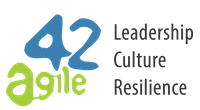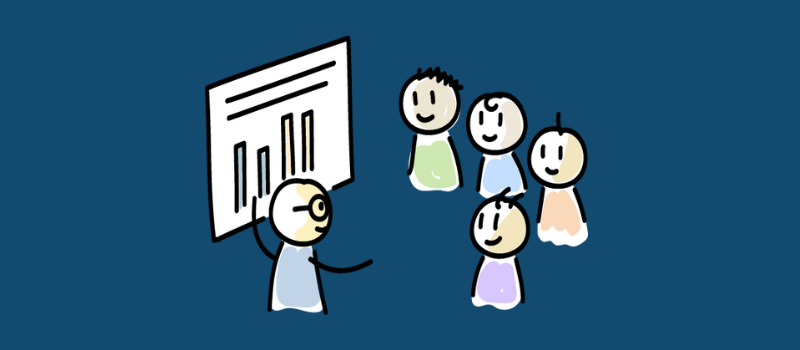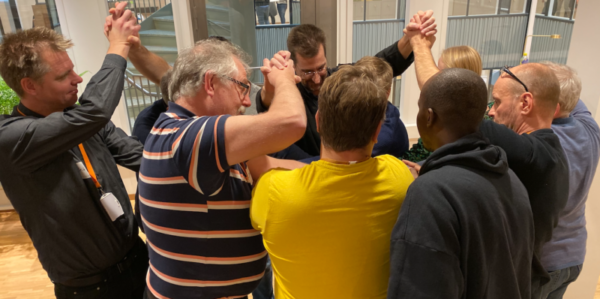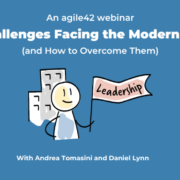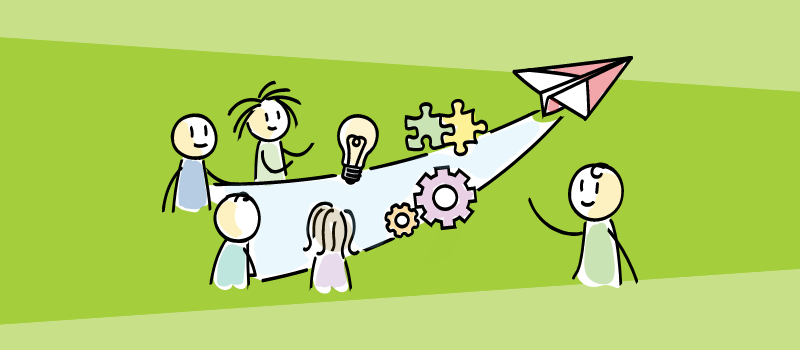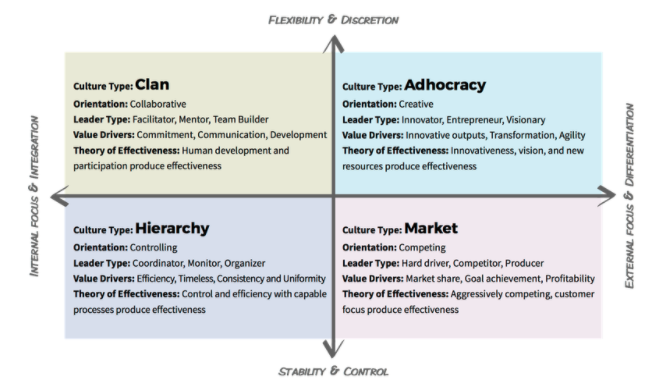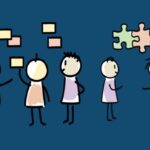Organizational Culture – The Role of Leaders and HR Professionals
The culture of an organization is like its DNA. It represents the collective set of beliefs, values, and behaviors that define its character. I have always been interested in people: I love communicating and getting to know someone new. I am curious about what motivates people and what makes them become disengaged. At agile42, I am often the go-to person for individuals who are facing personal challenges or conflicts with colleagues. Through these experiences, I have witnessed first hand how leaders can shape organizational culture, for better or for worse. I believe that both HR professionals and leaders are responsible for shaping culture, as our actions and attitudes set the scene for the rest of the organization. But traditional organizational culture surveys are failing us, and preventing HR and leadership teams from being able to do their best work.
Human Resources – More Than Just a Job
Working with people in HR requires more than just technical skills. It requires a certain level of passion, empathy, and strategic thinking. As HR professionals and leaders, we play a crucial role in helping employees develop their skills, fostering a positive organizational culture, and aligning our policies and procedures with the company’s goals.

Photo by Annie Spratt on Unsplash
However, achieving all of these goals is not always straightforward. We need to create an environment where employees are satisfied, engaged, and productive. We also need to be able to identify any areas of improvement. To do that, we require a deep understanding of what works well, what our colleagues enjoy, and what they do not.
In smaller organizations, the most common method to understand how employees feel about their work environment is through talking. Unfortunately, this does not always provide reliable information, since there are too many biases, fears, interpersonal factors, and other variables influencing how people talk to one another. Another common way to gather information or feedback is through questionnaires and surveys. These surveys aim to help us understand employees’ perceptions of their work environment. But the question remains: can we base strategic decisions on the data we collect through a survey? Is it telling us what we want to hear, or is it really the truth?
Do Traditional Employee Surveys Really Work?
The short answer? No.
There’s been extensive research on the topic of employee surveys, and the results paint a picture of massive failure. A 2017 large-scale survey revealed that only 22% of HR professionals are getting “good results” from the surveys they administer. Another study revealed that 27% of managers never review survey results at all, and only 30% of employees actually engage with these surveys, falling well short of the 60-70% required for unbiased data.
Finding the right questions for your survey is not the problem. Questions like, “How satisfied are you with your job?”, “How well do you feel supported by your supervisor/manager?”, or “How likely are you to recommend this company as a good place to work?” can yield useful information. The real challenge is to ensure that the answers obtained are unbiased and grounded in real data and facts rather than just feelings or fleeting responses based on a momentary emotion.
And there are other problems too. In typical organizational culture surveys, we usually have a rating scale system, usually numbered from 1-5, or perhaps “strongly agree” to “strongly disagree”. This data collection technique is useful as it makes for easy analysis, but it is limiting. It doesn’t leave much room for nuance, context, or unique circumstances.
Types of Survey Biases
There are two common biases that arise when asking people questions about their work. The first is the primacy effect where people tend to remember and place more importance on their most recent experience. Their response is often influenced by their current emotional state and context. When the survey question is asked in person, the answer is often influenced by the relationship between the individual and the interviewer.
The second common bias is the social desirability bias where people tend to respond in a way that is more socially acceptable or what they believe is expected of them, rather than what they truly believe. For example, if you ask someone if they feel supported by their leader, you might get a positive response just because the person wants to avoid appearing negative or ungrateful. They may even be scared of losing their job or creating a toxic environment.
Alternatives to Traditional Organizational Culture Surveys
Leaders use organizational culture surveys to enable improvement or change. To do that, they need to ask for feedback and understand the true feelings and opinions of their colleagues. It is therefore important to make sure the information we gather and build our strategy around is candid and unbiased. Since both humans and organizations are complex, a survey or questionnaire needs to embrace complexity and use the right methods to gather data and facts.
This is where agile42’s Organizational Scan can have a significant impact. Our OrgScan was developed by Andrea Tomasini, the co-founder of agile42, in collaboration with Dave Snowden, the inventor of the Cynefin framework. This tool uses sense-making techniques to collect data about an organization’s culture, leadership styles, market readiness, and employee engagement levels. It monitors how decisions are made in an organization to collect unbiased data and insights. These insights can then identify strengths, weaknesses, and areas of improvement in your organization.
One of the key features of the Organizational Scan is the use of our patented triads instead of rating scales. These are groups of three related items, such as values or behaviors, that are used to assess an individual’s answers. For example, a triad might consist of the values of teamwork, innovation, and customer focus. Participants in the scan are asked to interpret a decision that was made, indicating which of the three values informed the decision. This requires participants’ involvement and allows them to express their preferences and opinions without external influence.
By using this structured and unbiased approach to data collection, organizations can gain a better understanding of their internal dynamics, employee happiness, and processes. This forms an understanding that we can use to develop strategies to guide our organization toward sustainable change.
